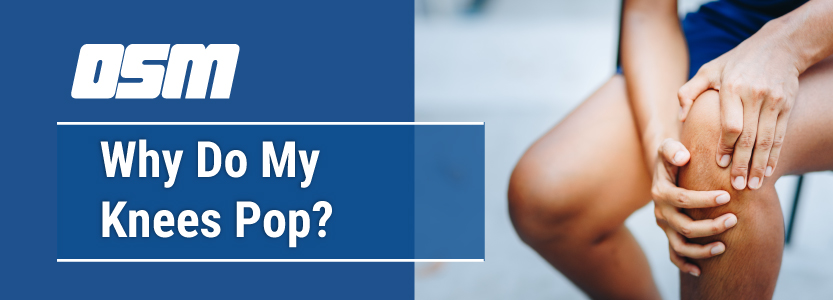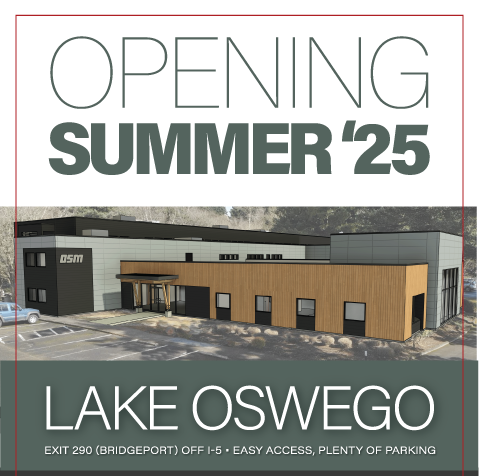Why Do My Knees Pop?
Article featured on Cone Health Medical Group
Have you ever bent down to pick up something and heard a loud pop or crack coming from your knees? This sound is called “crepitus,” which is defined as “joint noise.” Popping knees are not unusual. It happens when carbon dioxide builds up in the joint’s synovial fluid and is released as a gas bubble that bursts when the joint adjusts rapidly. It is the same process that causes knuckles to crack.
Most of the time, this noise should cause no concern. There has been a rumor circulating for years that popping joints are a sign of impending arthritis, but there has been no research that supports this.
Some folks may hear a grinding noise in the knee when they squat. This is another form of crepitus and is typically nothing to be concerned about. The sound is caused by the cartilage rubbing on the joint surface and other soft tissue when the knee moves.
Most people experience crepitus their entire lives with no problems.
What if it hurts when my joints pop or grind?
You should be concerned if you have joint noise that is accompanied by pain, discomfort or swelling. This could be a sign that medical attention is required. Two of the most common cause for knee pain are:
- Cartilage injury or wear. The underside of your kneecap can unevenly rub on the front of your femur (thigh bone) and cause the cartilage under your kneecap to soften and wear off. Once the cartilage wears off, it hangs around the joint and can irritate the surrounding area. This irritation can result in pain when squatting, climbing stairs or even sitting for an extended period.
- Meniscus tear. The rubbery disc that cushions your knee and absorbs shock is called the meniscus. It can tear when there is an unexpected twist or turn in the joint, usually when the knee moves and the foot stays stationary. With aging comes greater risk of a meniscus tear, even through everyday activities.
What are the treatment options for knee injuries?
- Rest – Stay off your knee as much as possible.
- R.I.C.E. – Rest, ice, compression and elevation will promote healing and reduce swelling.
- Knee Brace – There are many kinds, so it is best to consult your care provider for advice.
- Physical therapy – A physical therapist can help you learn techniques and exercises to strengthen your knee and allow it time to heal.
- Surgery – Minimally invasive surgery, especially for meniscus tears, can repair the tear and clear out any tissue causing pain, swelling and irritation.
To help protect the knees, try exercises that develop the quadriceps, which are the muscles in the front of the thigh. Exercises that benefit this muscle group are walking, cycling and swimming. Other effective ways of protecting the knees are wearing supportive shoes, warming up before and stretching after exercise, and maintaining a healthy body weight.
The Orthopedic & Sports Medicine Center of Oregon is an award-winning, board-certified orthopedic group located in downtown Portland Oregon. We utilize both surgical and nonsurgical means to treat musculoskeletal trauma, spine diseases, sports injuries, degenerative diseases, infections, tumors and congenital disorders.
Our mission is to return our patients back to pain-free mobility and full strength as quickly and painlessly as possible using both surgical and non-surgical orthopedic procedures.
Our expert physicians provide leading-edge, comprehensive care in the diagnosis and treatment of orthopedic conditions, including total joint replacement and sports medicine. We apply the latest state-of-the-art techniques in order to return our patients to their active lifestyle.
If you’re looking for compassionate, expert orthopedic surgeons in Portland Oregon, contact OSM today.
Phone:
503-224-8399
Address
1515 NW 18th Ave, 3rd Floor
Portland, OR 97209
Hours
Monday–Friday
8:00am – 4:30pm




